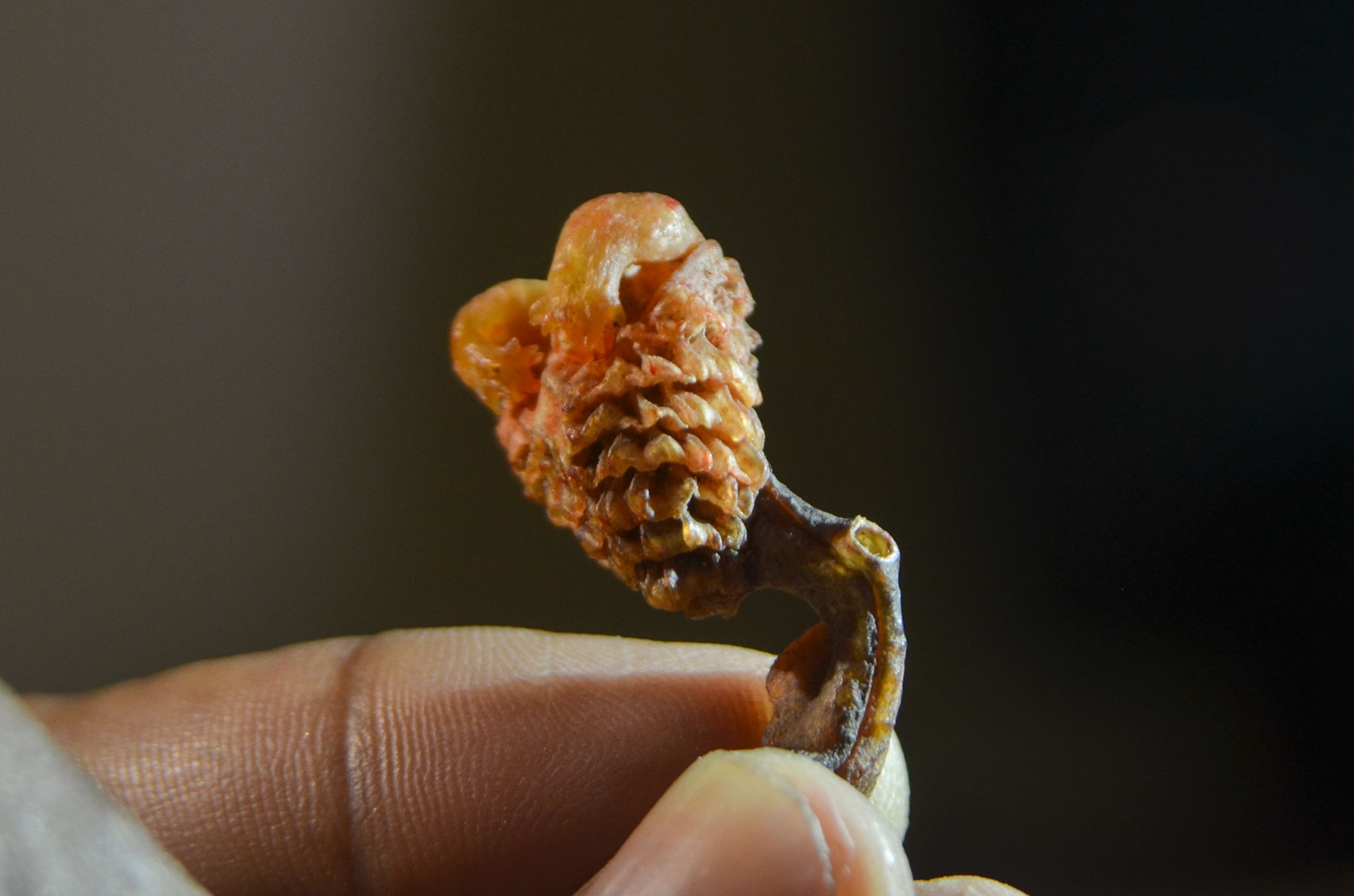
How Lizard Genitalia Became a Black Market Craze
The trade involves reptiles, plant roots, and unsuspecting customers.
Wildlife crime investigator Jose Louies says he never imagined he'd spend his time tracking down lizard penises. But that’s what he found himself doing on June 21 when he and a colleague entered a tantric shop in Noida, a city in northern India, with the intention of feigning interest in buying—of all things—reptile genitalia.
Louies, who heads the crimes unit with the conservation organization Wildlife Trust of India, was there as part of a sting operation targeting shop owner Acharya Kalki Krishna. A former customs officer turned occult leader, Krishna was suspected of peddling the genitalia of lizards.
After police received the agreed signal—a text message—they raided the shop and arrested Krishna for attempting to sell illegal wildlife products.
The arrest was the latest in a string of busts by law enforcement officers in India intended to shut down yet another bizarre practice in the world of wildlife crime. This one involves sales not of horns or tusks but of hemipenes—the two-pronged sex organ—of monitor lizards.
The lizards, which help control insect and rodent populations, are protected under Indian law and an international treaty that bans trade deemed to threaten an animal’s survival. Even though India’s four monitor lizard species aren’t yet close to endangered status, the newly discovered threat has conservationists worried. The lizards already suffer from poaching for their meat and skins—used to make craft drums and sandals.
To drum up interest in the unique merchandise, sellers have concocted a scheme that preys on the superstitious nature of their customers, according to Louies. The ruse involves drying the penises and marketing them not as reptile parts but as magical plant roots that bestow happiness on their owners.
“They say it can bring you good luck, save you from court cases,” Louies says.
The scammers call the product hatha jodi, a Hindi term that translates to “clasped hands” and is a nod to the reptile genitals’ resemblance to palms joined together in prayer. In an effort to further boost appeal, some claim that the root comes from rare plants found in sacred spots such as Nepal’s Lumbini, the birthplace of Lord Buddha, or in the hills in central India's Amarkantak.
But inspection by experts and lab analysis of seized hatha jodi products reveals a very different story.
‘WE COULDN’T BELIEVE IT’
The genitalia business first popped up on Louies’s radar in 2016 after an informant brought him a sample and told him that poachers were killing monitor lizards as part of a money-making scam.
The man said he'd witnessed poachers clubbing male lizards to death, making incisions to protract their two-inch hemepenes (which remain hidden in a pouch except when mating), and slicing them off with a sharp blade. The organs are then sun-dried and sold as plant roots in India and abroad.

“We couldn't believe it,” Louies says. “I’ve heard about tiger penis being used, but that’s a charismatic species. Here you are talking about a bloody lizard!”
His surprise grew when a quick Google search of hatha jodi returned more than a hundred ads for the product, ranging in price from about $5 to $70, on e-commerce sites such as Amazon, Snapdeal, eBay, and Alibaba.
Neil D’Cruze, global wildlife advisor for the U.K.-based World Animal Protection, discovered the trade around the same time as Louies and did his own digging in India and online.
“Being in Delhi and going to the stores and seeing the items, it became 100 percent clear they were monitor lizards,” says D’Cruze, who specialized in herpetology while receiving a doctorate from Oxford Brookes University, in England.
Law enforcement officers from India's Wildlife Crime Control Bureau, as well as conservationists with the Wildlife Trust of India and the International Fund for Animal Welfare, began a full-scale investigation into the trade. They went undercover and spoke to traders who touted the benefits of their wares and suggested ways to “energize” them, such as by dipping them in a honey-milk mixture or performing midnight chants in their presence.
Louies believes that although the fictitious plant root can be found in tantric shops across India, the bulk of the trade happens online. Global demand has ramped up in recent years with the growth of e-commerce sites.
“It’s a domestic trade that’s now spreading its tentacles out beyond, most likely targeting expat communities in Europe, the U.S., Canada,” D’Cruze says.
Shutting Down the Business
The first bust in India occurred in May, when police seized hatha jodi from a seller in Hyderabad. They sent about 30 samples to the country’s Centre for Cellular & Molecular Biology, where a genetic test revealed that the material was monitor lizard penis.
Officers have since made an additional 10 to 15 arrests, according to Louies. One, in Bhubaneshwar, involved the confiscation of 210 pieces of hatha jodi.
“We wanted to take the traders by surprise,” Louies says. “The idea was to hit them when they didn’t expect it.”

There are signs that the crackdown is helping stymie the trade. D’Cruze says that e-commerce sites Alibaba and eBay have removed hatha jodi items, although Amazon’s websites in the U.S. and Canada still offer them.
“Amazon does not allow the sale of illegal items so we are investigating,” a company spokesperson told National Geographic.
Louies has installed an alert on his computer that lets him know every time a new pitch for hatha jodi appears online, and he plans to launch a website educating the public about the product’s true identity.
Yet despite all that Louise and others have learned about the black market in lizard penises during the past year, at least one nagging mystery remains. “Right now,” D'Cruze says, “we really have no idea who came up with this devious plan that involves the illegal poaching of thousands of monitor lizards.”